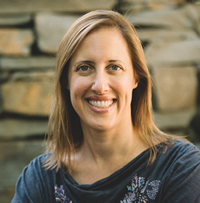Find a CBT Therapist
Search through our directory of local clinicians.
Shireen Rizvi

Mentor Spotlight
Shireen Rizvi, PhD, ABPP, is Associate Professor of Clinical Psychology, Graduate School of Applied and Professional Psychology (GSAPP); Clinical Associate Professor, Department of Psychiatry, Rutgers Robert Wood Johnson Medical School; Member of the Graduate School Faculty, Department of Psychology, Rutgers University; and Director, Dialectical Behavior Therapy Clinic at Rutgers University (DBT-RU).
Shireen says research and clinical interests include Dialectical Behavior Therapy (DBT), borderline personality disorder, treatment development for serious mental health problems, and suicidal behavior. Specifically, I have conducted research on applications of DBT in novel settings or populations (e.g., graduate level training clinics, college students) as well as on ways to improve outcomes in standard DBT. I have particular interests in the use of technology to improve DBT training and outcomes. Broadly speaking, as a professor in two doctoral level clinical programs, I am passionate about teaching and disseminating cognitive behavioral treatments.
I have 11 years as a faculty member advising and mentoring doctoral students (both PsyD and PhD clinical students).
Length of time as a member of ABCT: 18 years
What type of mentor do you aspire to be? Do you have a mentorship philosophy?
I aspire to be an accessible mentor who can advise students on research, clinical, and broader life matters. I see mentoring as a form of giving back and, relatedly, I have a particular passion for mentoring young women and for teaching them how to successfully advocate for themselves.
Whom do you perceive to be your most influential mentors?
I am extremely grateful for the mentorship I have received. I did not grow up in an academic family and had no interactions with academics until I went to college. I feel like it was a major stroke of luck to obtain a work study position with Ruth Striegel-Moore at Wesleyan University. She was my first introduction to clinical psychology, was successfully balancing a productive research career, an administrative position (chair of the department), and motherhood, and I just remember wanting to be like her “when I grew up.” And of course, my other most influential mentor is Marsha Linehan, my graduate school advisor. I would not be where I am, doing what I love, if it weren’t for her.
What practices do you engage in that foster your mentorship style?
An active mindfulness practice is important for me. Being mentally present in the room with the student(s) during a research meeting or supervision can be challenging when faced with a long to-do list or pressing family matter. However, when I really practice being mindful, I find that I feel more in tune with my students’ needs.
What are your strengths as a mentor?
I think a major strength is that I am genuine and, using DBT parlance, will “plunge in where angels fear to tread.” That is, I don’t treat students as fragile or incapable of receiving difficult feedback. In return, I think they appreciate having honest, direct conversations about their strengths and areas to improve in research and clinical domains.
[Funny side note: I just looked up the expression “angels fear to tread” and saw that the full quote (that Linehan never mentions!) is that “fools rush in where angels fear to tread.” So there you have it- my strength is that I’m a fool!]
What do you tend to look for in potential mentees?
Students who are the best match for me are those who love to be challenged! In my clinic, we do research and treatment with individuals who frequently have the types of problems that would exclude them from most other clinical training settings. Therefore, I look for students who are excited by these “messy” opportunities and are willing to roll up their sleeves and work hard.
What advice would you give to other professionals in your field who are starting out as mentors?
This might be counterintuitive in this context but my advice would be: recognize that you can’t be everything to everyone always. I think I had an idea in my mind that good mentors have unlimited amounts of opportunities and time to give to their students. After I had children, I realized that there were limits to the amount of mentoring activity I was doing, not only because of constraints on time but because I felt I did not have an ounce of mental energy left to give to others. I was happy to discover that this phase was temporary and that when my younger child turned 2, I suddenly found renewed enthusiasm for mentoring. Thus, my advice would be to accept that there will be phases of burnout and to roll with them.
What do you enjoy doing for fun/relaxation?
With two young boys at home taking up most of my non-work time, I wish I had more time for fun and relaxation! Exercise is key for me for maintaining sanity, as is listening to non-news-related podcasts, and some guilty-pleasure TV shows (which shall go unnamed).
My Account Info
Manage your Membership information, email preferences, and more.
Journals
Membership in ABCT grants you access to three journals.
Convention
We are now accepting Abstract submissions for Continuing Education Ticketed Sessions at the 2024 ABCT Convention in Philadelphia, PA.
My Account Info
Manage your Membership information, email preferences, and more.
Journals
Membership in ABCT grants you access to three journals.
Convention
We are now accepting Abstract submissions for Continuing Education Ticketed Sessions at the 2024 ABCT Convention in Philadelphia, PA.
